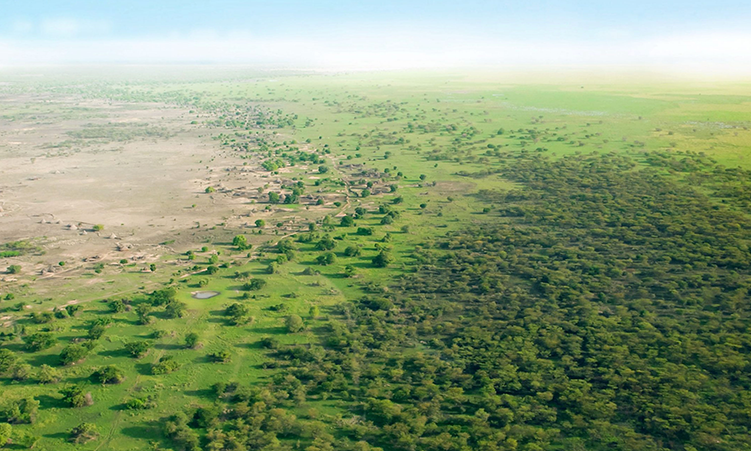Environment minister Pohamba Shifeta has urged for greater support to ensure the successful implementation of the Great Green Wall Initiative (GGWI).
This project aims to combat desertification and climate change across Africa.
Shifeta made this call at an event held on the sidelines of the sixth Conference of the Parties to the United Nations Convention to Combat Desertification (UNCCD) in Riyad, Saudi Arabia.
He said the implementation of the GGWI is resource intensive.
“Financial and technical support would be needed to fully operationalise this initiative,” he said.
Shifeta said Namibia is fully committed to the pan-African ambitions to drive the project.
“Restoration interventions targeting comprehensive landscape and ecosystem management approaches focused on sustainable dryland, natural vegetation regeneration and water conservation are the mainstay of our quest to build drought resilience, achieve land degradation neutrality and combat desertification for the benefit of our people,” he said.
He said Namiba has made strides towards achieving integrated landscape management in key areas, such as agriculture, riverine, forests and the biodiversity landscape, reducing poverty through sustainable nature-based livelihoods.
Namibia recently concluded flagship initiatives, including the Integrated Landscape Approach for Enhancing Livelihoods and Environmental Governance to Eradicate Poverty project, the Dryland Sustainable Landscapes for Sustainable Land Management and Sustainable Forest Management project, the Biomass Utilisation by Sustainable Harvest project and the Bio-Economy project, the minister said.
In addition to these initiatives, Namibia has a draft Great Green Wall Initiative Action Plan in place, which is fully aligned to the country’s land degradation neutrality targets.
“This action plan aims to implement key initiatives in the context of agroforestry, aiming at reducing biodiversity loss, carbon sequestration and improving food security and livelihood diversification in the context of poverty eradication,” Shifeta said.
He said the GGWI started in the Sahara and Sahel regions in 2005, but has now been extended to the Southern African Development Community (SADC) region, and thus far 16 countries in the SADC are implementing it.
In 2015, Shifeta expressed the need for extending the initiation to the SADC region as environmental challenges are transboundary in nature and therefore, African countries need to work together if the environment is to be protected in its totality.
The GGWI is linked to African Union’s Agenda 2063 and the 15th goal of the Sustainable Development Goals, which calls for the protection and conservation of life on land.
The initiative is about collaboration and working together, because environmental challenges such as climate change do not know political boundaries.
At the moment, a number of SADC countries are facing multiple environmental challenges, ranging from loss of biodiversity, desertification, water stress and climate change.
The GGWI is an African Union Commission-led project with an epic ambition to restore 8 000km of degraded land across the entire width of Africa.
Its goal is to provide food, jobs and a future for the millions of people who live in the region on the front line of climate change.
Stay informed with The Namibian – your source for credible journalism. Get in-depth reporting and opinions for
only N$85 a month. Invest in journalism, invest in democracy –
Subscribe Now!






